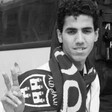20 December 2011
Last night, Israeli authorities released another 550 Palestinian prisoners in the second stage of a prisoner swap deal with Hamas, the ruling party in the Gaza Strip, according to which Hamas released the abducted Israeli soldier Gilad Shalit who had been held in Hamas’s captivity for more than five years.
Two things I wanted to flag up as a follow-up to the coverage of the prisoner deal.
First, I have sadly become used to reading news about Israel’s Ministry of Housing and Construction – no irony intended, that’s what’s it is called – issuing permits to build new settlement units in East Jerusalem and the West Bank. Absolutely sad news but what can we do about it?
Usually the number is a thousand or more. I genuinely can’t remember a time when I read this kind of news in which the number of the settlement units was not in thousands.
However, what is interesting about the number this time is the fact that it was 1028. Rings a bell? It’s all right; perhaps it was a mere coincidence, although the fact that it happened on the same exact day when Israel had to release the rest of 1027 Palestinian prisoners from its jails makes me doubt that it was a coincidence. That is definitely Israel’s blatant and shameless arrogance which was obviously dealt a blow by the prisoner swap deal they had to strike with Hamas, and whereby they had to ironically repair the damage by building the same number (plus one) of settlements on occupied Palestinian land.
Secondly, I watched a video of one of the released Palestinian prisoners’ reunion with his mother. I am not certain if I have a lot to say about it. One thought instantly crossed my mind when I saw it, desperately trying to gulp back my tears at the incredibly flowing emotionality of the scene: Are we not humans. I immediately recalled another clip that I watched earlier in which herds – the word is intentionally used – of Palestinians are deplorably humiliated at checkpoints by Israeli soldiers in the West Bank and in which one Israeli soldier refers to them as well as everyone living “there” (meaning inside the West Bank; all Palestinians) as animals.
My tears running down my face, I continued to watch the affectionate warmth and utter passion with which the mother embraced and kissed her son where they seemed to merge again into one human being after years and years of forced separation. The son detaches himself from his mother, kneels toward her feet, and, starts kissing them.
“Are we not humans?” I kept asking myself.
In fact, although no one is in a position to judge who is more human than the other, I must say those who casually kiss their mothers’ feet as a sign of love and respect are the most human amongst all humans.
And nothing is most fitting to end with than a Shakespearean quote put in Shylock’s voice. When I was first taught The Merchant of Venice, I still remember when it was time to discuss that quote, I was disturbed by what I thought to be the undue amount of time the teacher assigned to explaining it. I never knew it would strike a chord four years later.
Shylock, a Jewish merchant who was hugely and brazenly discriminated against across Venic for only being a Jew, delivers a moving speech addressing a Christian audience in the court. Having replaced the word “Jew” with “Palestinian”, it reads as follows:
I am a Palestinian. Hath not a Palestinian eyes? hath not a Palestinian hands, organs, dimensions, senses, affections, passions? fed with the same food, hurt with the same weapons, subject to the same diseases, healed by the same means, warmed and cooled by the same winter and summer, as an Israeli Jew is? If you prick us, do we not bleed? if you tickle us, do we not laugh? if you poison us, do we not die? and if you wrong us, shall we not revenge? If we are like you in the rest, we will resemble you in that.
Below is the video of the released Palestinian prisoner’s reunion with his mother.

